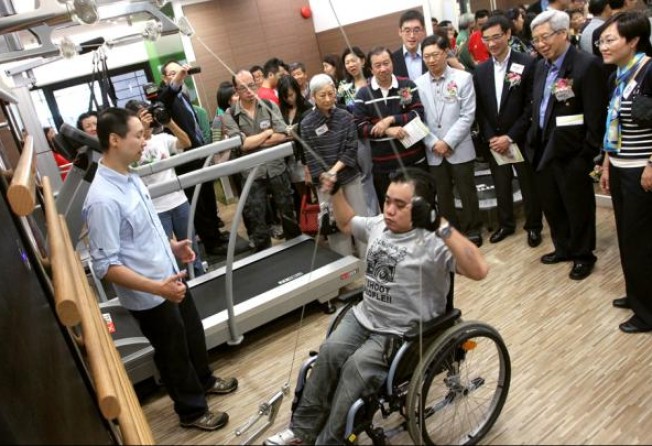People with disabilities deserve to enjoy life, too
Noeleen Heyzer hails moves in the region to embrace an often forgotten segment of society

This year's Paralympics in London captivated the world's attention with the strength of the spirit demonstrated by people with disabilities. We were all moved by the determination and perseverance of the athletes to overcome amazing odds.
What we saw gives us reason to pause and reflect on the everyday struggles of people with disabilities. There are 650 million of them in the Asia-Pacific region. They account for 15 per cent of the population, but are mostly unseen, unheard and uncounted.
Evidence indicates they are among the most marginalised in society, often because of a lack of education and limited employment opportunities.
Having a person with a disability increases the chances of poverty in the household, which is more likely to limit that person's access to basic services, education and financial support.
Many lack access to the environment, public transport, knowledge, information and communication - all necessary for them to utilise their rights in what should be an inclusive society.
All these factors together result in a greater likelihood of economic and social exclusion.
What other compelling reason will make us pay closer attention to disability?
The region is experiencing unprecedented ageing of its population. By 2050, in much of East Asia, one in three people will be aged 60 and above. In other parts of the region, it will be one in four, meaning there will be significantly more older people in our societies, and many of them are likely to have some form of disability. Indeed, it is projected that, by 2050, 80 per cent of the people with disabilities in some parts of the region will be aged 60 and above.
So, regional governments sent representatives a month ago to a UN Economic and Social Commission for Asia and the Pacific conference in Incheon, South Korea, to address the barriers that prevent the growing number of disabled people participating in social, economic and political life.
The governments adopted the world's first set of disability inclusive development goals. For the first time, the region will be able to track and measure progress to improve the quality of life for these people.
Among the goals are to reduce poverty among people with disabilities, improve their access to the physical and information and communications technology environments, and increase their education and employment opportunities.
It is time to give thought to how we can reshape our societies - where we live, where we work and where we play - to enable all of us to enjoy the same freedom of movement and access to all aspects of life.
Dr Noeleen Heyzer is undersecretary-general of the United Nations and executive secretary of the UN Economic and Social Commission for Asia and the Pacific